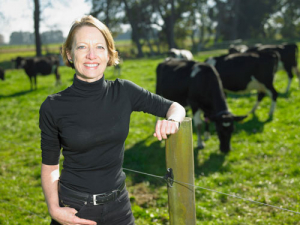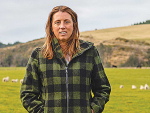Food and environmental activists are on record as suggesting New Zealand should be ruminant-free to create a cleaner greener country.
This overlooks the increasing body of research which suggests that the grazing animal has an important part to play in improving soil ecological function as well as stabilising the soil to reduce erosion potential and hence sediment in waterways.
North American research published in 2016 compared cropping with grazing ruminants. The assessment showed that globally, greenhouse gas emissions from domestic ruminants represented 11.6% of total man-made emissions, while cropping and soil-associated emissions contributed 13.7%. The primary source was soil erosion. The authors explained that permanent cover of forage plants is highly effective in reducing soil erosion, and ruminants consuming only grazed forages under appropriate management result in more carbon sequestration than emissions.
This described the situation for most sheep and beef farmers in NZ, whose activities occupy 8.75 million hectares (at least five times the area of dairying).
The key to interpretation and applicability of research results to a different geographical area is always the starting point, plus the similarity of the factors involved in production such as the temperature and moisture regimes.
Cropping, where it is possible, generally involves removal of a considerable amount of nutrient which must be replaced with fertiliser. Establishing the crop requires removing the previous crop, preparing the seedbed and killing weeds. This continues throughout the growing season, as might fertiliser addition to match crop requirements. Control of insects and diseases might also be involved.
All these activities increase the greenhouse gases associated with the ultimate harvest, which in itself requires more fuel, as does crop processing. In contrast, the grazing animal harvests food for itself, but creates methane (from the rumen) and nitrous oxides (from the dung and soil). These are more active as greenhouse gases than the carbon dioxide released by fossil fuel, but the American research suggests that the positive effect of permanent pasture outweighs the negative effect of the ruminant.
The authors also point out that for much of the world, crops are not an option because of various resource factors such as rainfall and temperature. For NZ, topography rules out cultivation for crops. Instead, grazing animals turn pasture into human-edible protein and sustainable fibre. In the case of the deer industry, there are also products such as velvet which has health attributes.
The other main ruminants in NZ are the dairy animals, which occupy 1.7m ha. Removing dairy animals would also remove a considerable proportion of the export economy and the associated jobs. Of more importance in the environmental consideration would be the alternative use for the land.
Cropping is an obvious suggestion, particularly advocated by people who are vegan (reject all animal products) but overlooks the fact that (a) NZ is not generally competitive in protein crops (lentils and chickpeas, for instance) and (b) that cropping drives up greenhouse gas fuel consumption and chemical use and increases the potential for erosion.
On the Canterbury Plains, once the main area for the cropping industry, the increase in dairying has also been associated with increase in soil organic matter (and hence ecosystem functioning); the visual clue is in the decrease in dust-storms. Native plantings supported by the increased irrigation on the plains has supported biodiversity and wildlife habitat.
Plantings have been a major focus for dairy farms across NZ for ten years, with various clean river projects, wetland establishments, riparian planting and, overall, a billion dollars of spending enabled by high dairy prices and a commitment by farmers to the future of NZ.
Clean, green NZ is a goal for all, but is unlikely to be achieved without a pastoral ruminant economy. Research from North America confirms that NZ is ahead of the game.
• Jacqueline Rowarth is chief scientist at the Environmental Protection Authority, which manages the Emissions Trading Register.



















